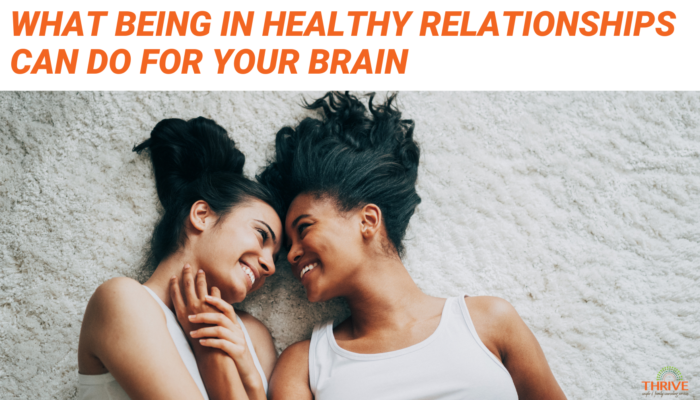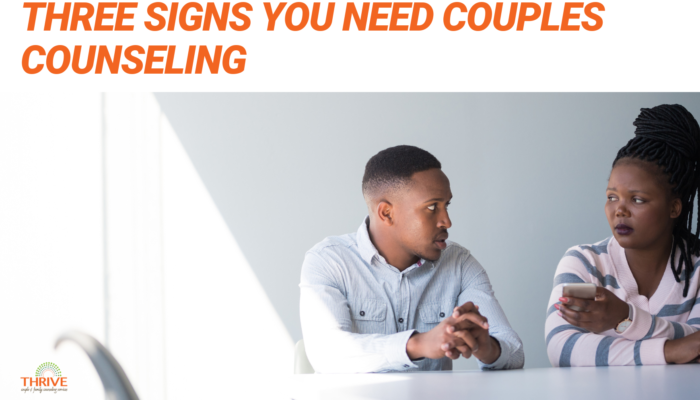Have you ever asked yourself questions like these about a relationship that you’re in?
- What happens to my physical and mental health when our relationship is struggling?
- Why do I feel so depressed and anxious when my relationship is not good?
- If I feel so awful, isn’t this a sign the relationship is doomed and I should leave?
When we experience problems in our relationships, we can feel the repercussions in every aspect of our lives, including our mental and physical health. You may have noticed that when your relationships struggle, your overall well-being struggles too. It can be frustrating and exhausting to cope with relationship struggles, which is why healthy relationships are so important. Research shows that healthy relationships can actually help support improved mental and physical health.
The Connection Between Brain Response, Physical Health, and the Strength of our Relationships
Think back to the most secure and happy times in your relationship. Chances are, your body and your brain knew your relationship was secure, and you flourished. Research has shown that people in strong, committed relationships have better overall physical and mental health than those who are single or in relationships that struggle.
Alternatively, if your relationship is in trouble, you’ll likely experience an increase of mental health issues such as anxiety, depression, sleep disruption, etc. Distressed relationships also have a negative impact on our physical health, including higher incidence of heart disease, stroke, and increased levels of cortisol in the body, which impacts our immune system functioning.
What Healthy Relationships Can Do For Your Brain and Your Health: Fascinating Study Findings
A fascinating research study recently published by the founder of Emotionally Focused Couple Therapy, Dr. Sue Johnson, and Dr. James Coan, University of Virginia neuroscientist, reveals one of the reasons why secure, committed relationships are likely correlated with improved physical and mental health.
The study involved measuring the brain’s fear and pain response to electric shocks to the feet of married women both before and after they participated in couples counseling using Emotionally Focused Therapy.
Before Emotionally Focused Couples Therapy, the women’s level of fear and pain was measured in an fMRI machine three different times: alone in the fMRI machine, holding the hand of a stranger, and holding the hand of her husband. There were very small decreases in fear and pain for the instance of holding the hand of the stranger, and interestingly, even smaller decreases holding the hand of her husband.
After 20 sessions of Emotionally Focused Couples Therapy, the level of fear and pain for the woman alone in the machine stayed the same. When she held the stranger’s hand, there was still fear and pain, but less than before the couples counseling. Remarkably, when she held her husband’s hand, there was very little pain or fear reported with the shock!
We are better off in healthy relationships than alone.
The results of this latest study confirm those of many others, which indicates we are better off in healthy relationships than alone. As mammals, we are hard-wired for life to seek out and flourish when we are securely connected with others.
The study (along with similar studies) also illustrates the effectiveness of Emotionally Focused Couples Therapy. In EFT, we help couples understand how they are getting stuck, how they can communicate their needs in ways that will yield the response they want, and change their interactional patterns so that they heal hurts and develop deep, secure, and satisfying closeness. Emotionally Focused Couples therapy helps you understand the roles you each play in your negative cycle so you can find better ways to reach each other and grow closer.
If you can identify with experiencing anxiety, depression, or stress in your life related to your most important relationships, schedule an appointment for Emotionally Focused Couples Therapy. Your brain will thank you!




